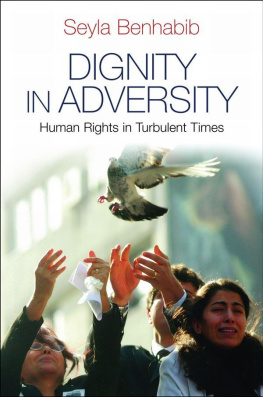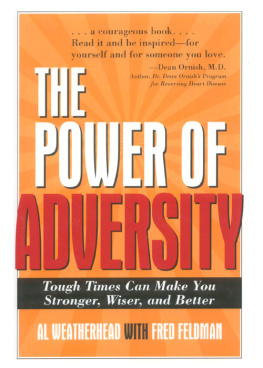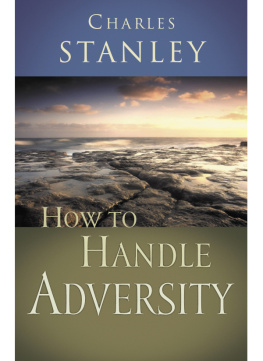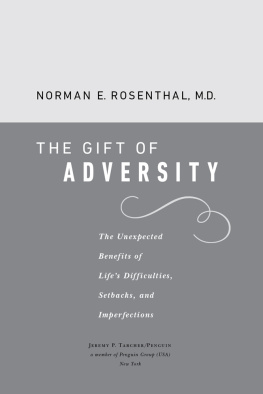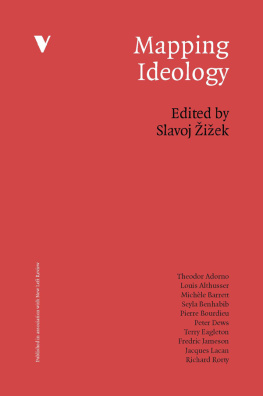Seyla Benhabib - Dignity in Adversity
Here you can read online Seyla Benhabib - Dignity in Adversity full text of the book (entire story) in english for free. Download pdf and epub, get meaning, cover and reviews about this ebook. year: 2013, publisher: Wiley, genre: Politics. Description of the work, (preface) as well as reviews are available. Best literature library LitArk.com created for fans of good reading and offers a wide selection of genres:
Romance novel
Science fiction
Adventure
Detective
Science
History
Home and family
Prose
Art
Politics
Computer
Non-fiction
Religion
Business
Children
Humor
Choose a favorite category and find really read worthwhile books. Enjoy immersion in the world of imagination, feel the emotions of the characters or learn something new for yourself, make an fascinating discovery.
- Book:Dignity in Adversity
- Author:
- Publisher:Wiley
- Genre:
- Year:2013
- Rating:4 / 5
- Favourites:Add to favourites
- Your mark:
- 80
- 1
- 2
- 3
- 4
- 5
Dignity in Adversity: summary, description and annotation
We offer to read an annotation, description, summary or preface (depends on what the author of the book "Dignity in Adversity" wrote himself). If you haven't found the necessary information about the book — write in the comments, we will try to find it.
Dignity in Adversity — read online for free the complete book (whole text) full work
Below is the text of the book, divided by pages. System saving the place of the last page read, allows you to conveniently read the book "Dignity in Adversity" online for free, without having to search again every time where you left off. Put a bookmark, and you can go to the page where you finished reading at any time.
Font size:
Interval:
Bookmark:
Table of Contents
To the Memories of John E. Smith and David E. Apter

Copyright Seyla Benhabib 2011
The right of Seyla Benhabib to be identified as Author of this Work has been asserted in accordance with the UK Copyright, Designs and Patents Act 1988.
First published in 2011 by Polity Press
Polity Press
65 Bridge Street
Cambridge CB2 1UR, UK
Polity Press
350 Main Street
Malden, MA 02148, USA
All rights reserved. Except for the quotation of short passages for the purpose of criticism and review, no part of this publication may be reproduced, stored in a retrieval system, or transmitted, in any form or by any means, electronic, mechanical, photocopying, recording or otherwise, without the prior permission of the publisher.
ISBN-13: 978-0-7456-5442-3
ISBN-13: 978-0-7456-5443-0(pb)
ISBN-13: 978-0-7456-5972-5(Single-user ebook)
ISBN-13: 978-0-7456-5971-8(Multi-user ebook)
A catalogue record for this book is available from the British Library.
The publisher has used its best endeavours to ensure that the URLs for external websites referred to in this book are correct and active at the time of going to press. However, the publisher has no responsibility for the websites and can make no guarantee that a site will remain live or that the content is or will remain appropriate.
Every effort has been made to trace all copyright holders, but if any have been inadvertently overlooked the publisher will be pleased to include any necessary credits in any subsequent reprint or edition.
For further information on Polity, visit our website: www.politybooks.com
PREFACE
Around September 18, 2001, almost a decade ago, I crossed Whitney Avenue in New Haven, Connecticut, with my 14-year-old daughter, traveling from our house to a Red Cross center to give blood for the victims and rescuers of the Twin World Towers 90 miles away. As I gave my name, Seyla Benhabib, to the nurse in attendance, she froze for a moment: Ben-Habib wasnt Habib an Arabic name? Who was this lady with a foreign accent, she seemed to be thinking, coming in to give blood?
My daughter, who noted the nurses hesitation, immediately understood that I was being assessed as an Arab or a Muslim, and she squeezed my hand in solidarity. I could not help feeling, that early evening in Connecticut, that my gesture of solidarity with the victims of 9/11 and the fire-fighters and policemen of New York City was not wanted and, as it turned out, not needed: students of Yale University and other schools had already rushed to the Red Cross banks across New Haven, and actually, the blood banks were well stocked.
Nevertheless, something in me ached. The moral of this story is not about discrimination against Middle Easterners, Muslims, or Arab Americans, real though it is. Rather, it is about the complexity and multiplicity of identities to which my name testifies, but which bureaucratic administration shorthands in an increasingly securitized world political environment reduced to unequivocal signals of danger during the so-called war on terror. The lady at the Red Cross station could not have known that I was a Sephardic Jew born in Istanbul, whose earliest known ancestor was called Jacob Ibn-Habib, from the city of Zamora in Spain, and whose descendants were Rabbis and prominent members of a Jewish community first in Spain and then in Salonica and Galipoli. According to some historical records, when my ancestors tried but failed to persuade Christian authorities to permit the Jews to stay in Spain, they, like thousands in that period, left to seek refuge in the Ottoman Empire.
Islam for them was not a religion of war and jihad but a religion of tolerance that respected the Jews and granted them the right of hospitality, in Kants sense, and not only because they were people of the book, namely, the Torah, which Islam, along with the New Testament, acknowledged as being holy. Certainly, the history of the Jews of the Ottoman Empire has its experiences of discrimination, prejudice, oppression, and exclusion. Yet when I read about laffair du foulard the scarf affair that erupted in France when French authorities banned Muslim girls from attending public schools with their heads covered, and about the turban or basrt meselesi in Turkey, I think of my own grandmothers and aunts. They covered and uncovered their hair in much the same way as their Muslim neighbors did. I also think of Orthodox Jewish women who wear wigs in public places in Brooklyn, Queens, Jerusalem, as well as Paris and London. And I ask, a Turkish-Jew? A Jewish Turk? A Sephardic Jew growing up in a Muslim-majority country? A child of Ataturks Republic? What does it all mean?
The eruption of political Islam into world politics after September 11, 2001, has thrust these aspects of my biography, which I had considered of private import only, into theoretical and political debates concerning the dialectic of Enlightenment and the Jewish experience, international law and the Holocaust, Islam in contemporary Europe, and the meaning of contemporary cosmopolitanism.
The essays collected in this volume, which were written in the period from 2006 to 2010, document this trajectory. They continue the projects of discourse ethics and communicative rationality and freedom, which I have outlined in various works since the early 1990s, by extending them into the terrain of legal cosmopolitanism and recent world political events.
At the center of much contemporary political discourse is the concept of human rights: their justification; their scope; the relationship of philosophical accounts of rights to international declarations and to international human rights law, and their diversity across constitutions and legal traditions.
The following chapters discuss the philosophy and politics of human rights by offering a systematic account of their place within the project of discourse ethics and communicative rationality. They also examine rights against the background of changing conceptions of citizenship in Europe, in particular, as a consequence of Muslim migration, and they look at contentious debates since September 11, 2001, some of which dismiss demands for human rights as hypocritical justifications for humanitarian interventions, at best, and neo-imperialist ventures of global capitalism, at worst. But considerations of rights cannot be entertained independently of transformations of state sovereignty. Today, the tensions between the changing status of state sovereignty in international law and the normative ideal of a democratically self-governing people are the source of much acrimony. For some, international law undermines democratic sovereignty; for others and I count myself among them it enhances it. My aim in this book is to explore this complex landscape and to situate human rights discourse within a vision of democratic iterative politics.
NOTES AND REFERENCES
See Esther Benbassa and Aron Rodrigue, Sephardi Jewry: A History of the Judeo-Spanish Community, 14th20th Centuries (Berkeley, CA: University of California Press, 2000).
ACKNOWLEDGMENTS
A sabbatical from Yale University from January to July 2009, also generously supplemented by the Wissenschafstkolleg zu Berlin , first enabled me to conceptualize this collection. A subsequent stay from mid-June to mid-July 2010, in the Forschungskolleg Humanwissenschaften in Bad-Homburg, permitted me to develop it further. My thanks go to Dieter Grimm, Andrea Bchler, and Dipesh Chakrabarty, who shared their time at the Wissenschaftskolleg with me, and to Rainer Forst and Stefan Gosepath, from the University of Frankfurt, who enabled and funded my stay in Bad-Homburg through the Exzellenzcluster Initiative. Many thanks also to Peter Niesen and David Owen for their sharp observations during my stay in Bad-Homburg.
Font size:
Interval:
Bookmark:
Similar books «Dignity in Adversity»
Look at similar books to Dignity in Adversity. We have selected literature similar in name and meaning in the hope of providing readers with more options to find new, interesting, not yet read works.
Discussion, reviews of the book Dignity in Adversity and just readers' own opinions. Leave your comments, write what you think about the work, its meaning or the main characters. Specify what exactly you liked and what you didn't like, and why you think so.

